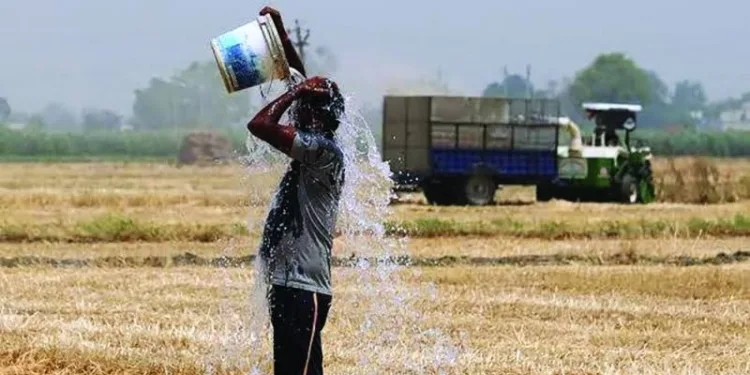Botswana is taking a drastic measure of cancelling outdoor activities and spot events due to severe heat waves that have hit some African nations.
With Legae Academy leading the charge, other academic institutions in Botswana have cancelled outdoor activities and sports events including its participation in a significant athletic competition in Lobatse.
As conveyed by WKolantsho Tshepang Othusitse, the head of the Physical Education Department at Legae Academy, the recent decision reflects the far-reaching effects of climate change on educational and athletic endeavours.
This move, prompted by concerns for student well-being, demonstrates Legae Academy’s commitment to prioritizing health and safety above all else.
As difficult as the decision may have been, it also highlights the school’s commitment to its student’s welfare over competitive achievements.
However, the decision has sparked a conversation and reactions among educational institutions regarding the need for adaptive measures to ensure learning and athletic programs can continue without compromising preventive health measures.
Their withdrawal from the upcoming Independent Secondary Schools Sports Association (ISSSA) athletics competition serves as a poignant reminder of the gravity of the challenges posed by climate change, especially in the context of educational institutions and sports programs.
Also Read: Botswana Communities Fume At UK’s Anti-hunting Bill
What does this mean for schools’ academic curriculum in Botswana?
The suspension of outdoor activities due to severe weather conditions presents not only logistical challenges but also academic dilemmas.
Educational institutions will have to reevaluate their curricula and extracurricular programs to adapt to these disruptions effectively.
This shift has a notable impact on students’ physical education and holistic well-being, as reduced opportunities for outdoor exercise and sports could result in enduring effects on their physical health.
The necessity for innovative solutions to ensure physical education is practised, such as indoor athletic activities, provision of indoor athletic facilities and revised schedules that avoid peak heat hours, is becoming increasingly apparent.
Moreover, this situation exposes the need to drive urgency for implementing educational policies that consider the health impacts of climate change, ensuring that schools are equipped to provide safe and effective learning environments under any kind of circumstances.
The conversations initiated by this incident in Botswana are crucial steps toward acknowledging and addressing the broader implications of environmental changes on education and youth development.
Just like in Botswana, the academic activities of schools in South Sudan were also affected by the severe heat wave.
In South Sudan, outdoor activities were not only stopped but schools were shut down to preserve and protect the health of students.
The health and education ministries I’m South Sudan proposed a preventive measure by advising parents to keep all children indoors as temperatures are expected to soar to forty-five degrees Celsius (113 Fahrenheit).
To implement the measure, South Sudan’s Ministry of Health and Education warned schools about closing and further threatened to withdraw the registration of any school found open during the stipulated period, but didn’t specify how long the schools would remain shuttered.
According to a report from WHO (World Health Organization), Botswana faces “20x more heat deaths in 2050 compared to the 1961-1990 period under a high emissions scenario.”
According to reports, some other West African countries affected by heat waves include Benin, Togo, Ghana, Ivory Coast, Liberia, Sierra Leone, and small parts of Guinea and Cameroon.
Ivory Coast experienced heat waves during February, hence, several cooling breaks were observed at this year’s African Cup of Nations. As Botswana take preventive measures to protect their younger generations from the implications of severe heat waves, other countries can follow their steps.










